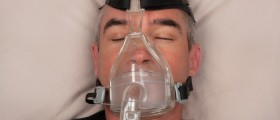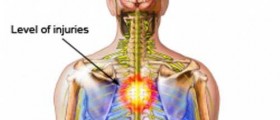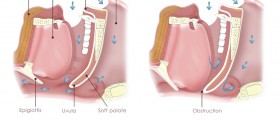
What is sleep paralysis?
During sleep paralysis, a person feels that he or she is awake and conscious, but unable to move or talk. Because the person often sees or hears things that are not there, this sensation can be terrifying, as he or she is not able to move and run away or to call for help.
Sleep paralysis occurs in the stages between wakefulness and sleep. The regular sleep patterns are disturbed, and during the passage into sleep a person cannot move or talk, and sometimes can have a feeling that someone is choking them. This condition often accompanies narcolepsy, a sleep disorder in which the brain cannot regulate sleep or control the urge to sleep, so a person falls asleep in inappropriate places at inappropriate times.
If sleep paralysis occurs while falling asleep, it is called predormital or hypnagogic sleep paralysis. If it occurs while waking up, it is called postdormic or hypnopompic paralysis.
During sleep, the body becomes very relaxed and dormant, while the mind becomes less and less aware. However, if a person is still aware or becomes aware while the body is relaxed, it may result in inability to speak or move.
It is believed that four out of ten people have sleep paralysis. It may be hereditary, but other factors may contribute to it. Those factors include irregular sleeping schedule, insufficient sleep, stress, bipolar disorder, narcolepsy, nocturnal leg cramps, certain medications and substance abuse. Diagnose and treatment
In some cases there really is no need to treat this condition. However, if a person is worried or anxious about the symptoms, if sleep paralysis leaves a person tired in the morning or prevents normal sleep, it may be a good idea to talk to a doctor. After hearing about the symptoms and personal and family medical history, the doctor may refer the patient to a sleep specialist, who will perform overnight sleep studies or daytime nap studies in a sleep lab.
Usually, the treatment consists of improving sleeping habits, treating any eventual sleep disorders the sleep paralysis may be linked to, taking antidepressants or addressing possible mental issues that may be contributing to this problem.

















Your thoughts on this
Loading...